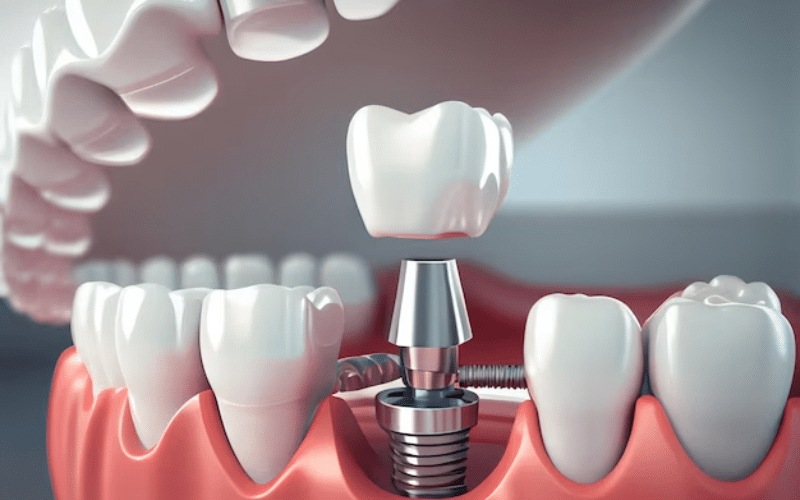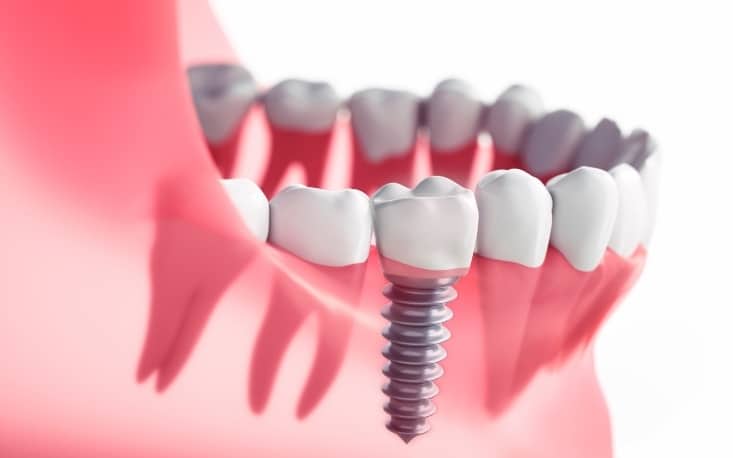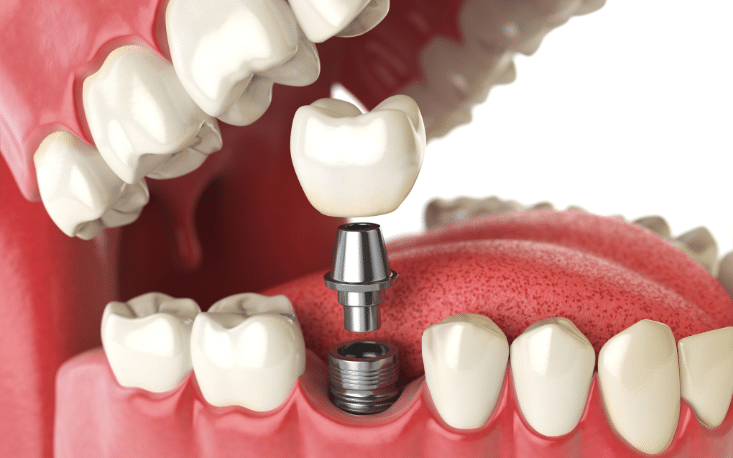ONLINE SCHEDULING AND VIRTUAL CONSULTS AVAILABLE

Common Dental Implant Problems And Ways To Handle Them

Dental implants have revolutionized modern dentistry, offering a durable and natural-looking solution for replacing missing teeth. While dental implants in Plantation, FL, boast high success rates, certain problems may arise post-surgery. Understanding these issues and knowing how to manage them is crucial for maintaining the longevity of dental implants and ensuring oral health. Let’s delve into common dental implant problems and effective ways to handle them.
Understanding Dental Implants
Dental implants in Plantation, FL, have become a leading solution for restoring missing teeth. As a result, it provides individuals with a natural-looking and functional alternative. These implants consist of titanium posts surgically inserted into the jawbone to serve as sturdy foundations for artificial teeth. Dental implants comprise three main components: the implant itself, an abutment, and a prosthetic tooth or crown.
The titanium implant fuses with the jawbone in a process called osseointegration. It ensures stability and mimics the function of natural tooth roots. Ideal candidates for dental implants in Plantation should have healthy gums and adequate jawbone density to support the implant. However, even individuals with insufficient bone density can undergo bone grafting procedures to enhance the implant’s stability.
Common Dental Implant Problems
Peri-Implantitis: Inflammation Around Implants
Peri-implantitis is a common issue characterized by redness, swelling, and bleeding around the implant area. It often occurs due to inadequate oral hygiene, leading to bacterial infection. To manage this problem, professional cleaning by a dentist or dental hygienist is necessary. They may also prescribe antibiotics to clear the infection. In severe cases, surgery might be needed to remove the affected tissue and promote healing.
Implant Failure: Osseointegration Issues
Sometimes, implants might not fuse well with the jawbone, resulting in implant failure. This could happen due to various reasons, such as poor bone density, smoking, or medical conditions affecting healing. To address this, dentists might recommend bone grafting to improve bone quality before a new implant is placed. In extreme cases of failure, the implant might need removal. Also, it might require considering a new implant after the area has healed adequately.
Nerve or Tissue Damage: Sensation Alteration
During the implant procedure, there’s a slight risk of nerve or tissue damage that might lead to altered sensation or numbness in the mouth, lips, or chin. In most instances, this resolves on its own over time. However, dentists might suggest medications or, rarely, additional surgery to rectify these issues.
Implant Loosening or Fracture: Structural Problems
Excessive force, bruxism (teeth grinding), or poor implant placement can cause components of the implant to loosen or fracture. This might create discomfort or impact the stability of the implant. Dentists can address this by replacing the affected part or using different techniques to secure the implant better.
Allergic Reactions: Hypersensitivity to Materials
Rarely some individuals may have allergic reactions to materials used in implants, such as titanium. As a matter of fact, it’s important to conduct tests before the procedure to identify potential allergies. In cases of confirmed allergies, alternative materials that are compatible with the individual’s body can be used to prevent adverse reactions.
Gum Recession and Bone Loss: Aesthetic and Structural Concerns
Over time, inadequate oral care or other factors may lead to gum recession or bone loss around the implant, impacting both the appearance and stability of the implant. Maintaining proper oral hygiene and attending regular check-ups can help prevent these issues. Additionally, dental professionals may recommend treatments like gum grafts to address gum recession and maintain implant stability.
Implant Infection: Risk of Bacterial Contamination
Infections can occur post-implantation due to bacterial contamination during or after surgery. Signs include pain, swelling, and discharge around the implant site. Dentists typically treat this with antibiotics and thorough cleaning. Maintaining good oral hygiene habits is crucial to prevent such infections.
Ways to Handle Dental Implant Problems
Regular Dental Check-ups: Preventive Maintenance
Visiting your dentist regularly is essential to catch any potential issues early. These check-ups help in identifying problems like gum disease, infection, or structural concerns around the implant. Early detection allows for timely intervention, preventing complications.
Maintain Excellent Oral Hygiene: Crucial for Implant Health
Brushing twice a day and flossing daily is vital to keep the implant area clean and free from plaque buildup. Using an antimicrobial mouthwash can also help reduce the risk of infections and inflammation.
Lifestyle Adjustments: Minimize Risk Factors
Avoiding habits like smoking and excessive alcohol consumption aids in better healing and reduces the risk of implant failure. Maintaining a balanced diet rich in nutrients promotes overall oral health and supports the healing process.
Follow Post-Operative Instructions: Vital for Recovery
After implant surgery, dentists provide specific instructions for care. It’s crucial to follow these guidelines diligently, including proper oral care routines and restrictions on certain foods or activities. Doing so aids in faster healing and reduces the likelihood of complications.
Awareness of Potential Complications: Prompt Reporting
Being aware of possible signs of trouble, such as pain, swelling, or changes in sensation around the implant area, is crucial. If any unusual symptoms arise, contacting your dentist promptly allows for a timely assessment and necessary treatment.
Stress Management: Minimize Teeth Grinding
Stress can lead to teeth grinding, known as bruxism, which can impact the stability of implants. Dentists might recommend wearing a nightguard to protect the implants and minimize the effects of bruxism.
Regular Professional Cleanings: Remove Plaque and Tartar
Professional cleanings performed by dental hygienists help remove hardened plaque and tartar that regular brushing might miss. This prevents gum disease and maintains oral health around the implant site.
Consideration of Medical Conditions: Inform Your Dentist
Informing your dentist about any medical conditions or medications you’re taking is vital. Certain conditions and medications might affect the success of dental implants, and your dentist can make appropriate recommendations to ensure better outcomes.
While dental implants offer a remarkable solution for tooth replacement, they can occasionally present challenges. Being aware of potential problems and employing preventive measures is crucial for successful implantation and maintenance. Regular dental visits, meticulous oral care, and prompt attention to any concerns can significantly contribute to the longevity and success of dental implants. As a result, it provides individuals with a confident and functional smile for years to come. So, if you want to replace your missing teeth with dental implants, visit us at My Dentist For Life Of Plantation today! Our dentists in Plantation, FL, are here to help you achieve the smile you have always dreamt of.





